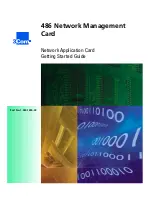
-15-
How to Deal with Noise
Control involving position determination control internally deals with signals of several msec. Because this signal is at a similar level to a
noise signal, no matter what control device is used, reliability and accuracy cannot be obtained without any noise countermeasures. When
making a device containing a position-determination control, please keep the following in mind.
If there is a device which stalls too frequently or produces motor position errors, there must be a clear noise source. The points are the
surge based on control by coils and contacts (relay circuit) and driving lines of various large-scale motors. They become fatal noise in
200V systems and a strong noise source even in DC 24V systems.
There are plenty of coils that can become a noise source such as coils in conductors, strong AC 200V buzzers, coil noise of solenoid valves,
etc. The first things to do in noise troubles are to look for coils and reevaluating power lines.
Parts on the Black List
Electromagnetically contacting parts: Noise countermeasures to coils and contacts.
AC motor: Drive by SSR. Power line wiring.
AC/DC solenoid: Noise measure to coils and contacts.
200V and 100V buzzers: Electromagnetic wave measure (distance and shielding).
Servo motor: Wiring of power line and signal lines (wire material, length, relay, and binding).
E A C 200
Install noise filters to power lines to prevent external-noise: One for strong and another for weak electricity.
Electricity leakage breaker
NF
AC servo
driver
AC servo is a
noise source
PS
MPC power ON/OFF is by the
primary side of PS
NF
Motor driving
line (shielded)
I/O
Signal line
24V line
MPC
Separation
Sequencer
Stepping
motor
driver
Separation
MS
Long wiring should be
separated by a relay etc.
Twisted-pair cable should be used for
pulse-signal lines, and should not be
cut in the middle or bound with
strong-electricity systems.
AC200 sequencer noise is
significant
A surge of AC 200V becomes fatal noise. There are noise
countermeasures for electromagnetic switch coils and contacts. Also,
these lines and DC 24V system should never be bound together.
SSR
ON/OFF of induction motor etc. should be preferably done by an
SSR with zero cross rather than by a relay.
One-side
grounding
AC100
DC24V
GND
If an MPC I/O and a sequencer I/O of another
power source are directly connected, the current comes
into MPC. Please separate them with a relay etc.
I/O
No binding with a
binding band
It is not good to bind stepping motor
driving lines and signal lines such as the
one for an origin sensor, either.
Relay control circuit
RS-232C
Pulse
RS-232C
I/O
I/O
Pulse
Crosstalk between signal line and
lines 5 & 6 by relay of RS-232C for
programming via cab-tire cable.
Please use twisted-pair cables.
RS-232C
I/O
Separate driver lines for a servo motor and
stepping motor, signal line, and DC 24V
line, and prevent relays as much as
possible.
Especially for robots and such, please
don’t bind motor driver lines, signal lines
such as the one for an origin sensor, DC
24V lines, etc. with the same plarail etc.
Install surge removers to coil resistors
such as solenoid valve, relay,
electromagnetic counter, etc.
RS-232C
To be separated from strong
electricity systems and short
wired. Be careful against static
electricity when connecting.
Confirm that the device is grounded.
Encoder line
(shielded)
Electromagnetic brake



































